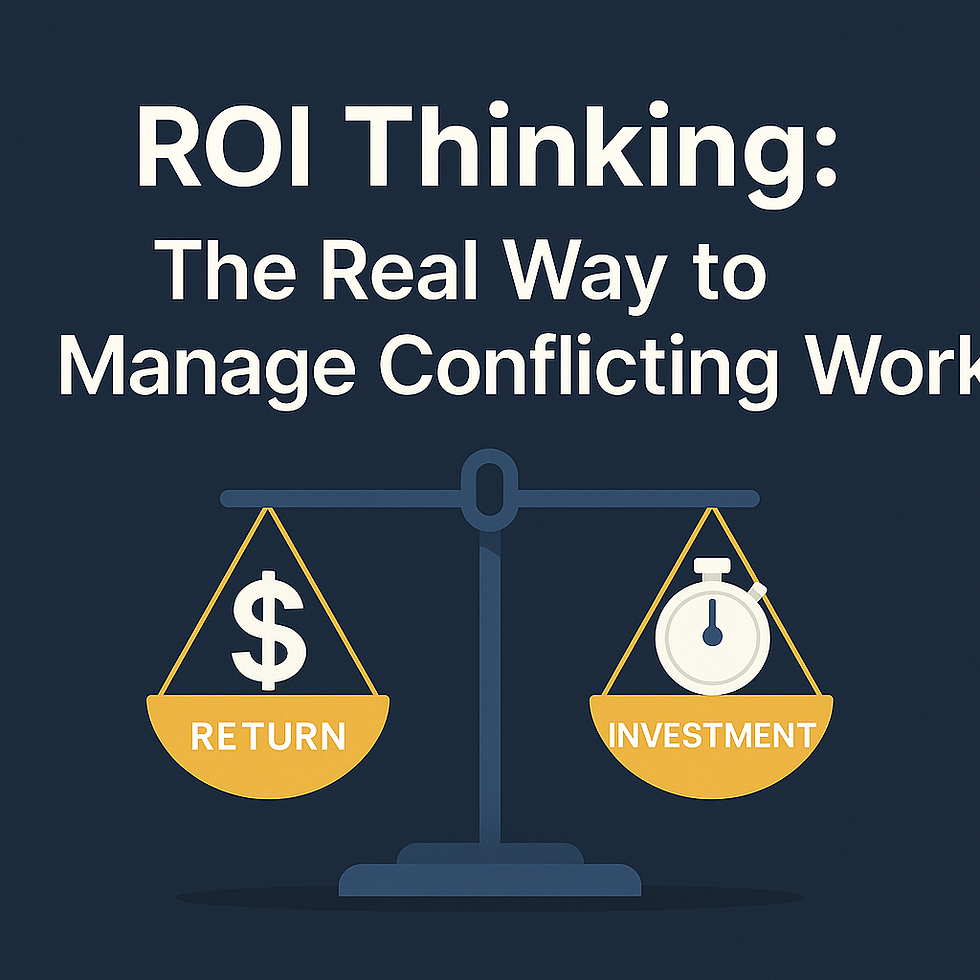The Great Time Illusion: Why the Past Feels Short and the Future Feels Long
- Admin
- Apr 27, 2025
- 3 min read

Time doesn’t just pass. It shapes us, tricks us, and misleads us—quietly, constantly.
There’s a strange asymmetry in how we perceive it:
We look back on years and feel like they flew by.
We look forward, even just days ahead, and feel like we have forever.
But this isn’t just poetic. It’s dangerous.
The Past Feels Short—Because Our Mind Compresses It
You’ve felt it:
“Childhood was just yesterday.”
“15 years of work? Can’t believe it’s been that long.”
You might even recall vivid details—the scent of your first office, the chair you sat in, your on-boarding buddy’s name—as if it happened last week.
And yet, it’s been a decade. Maybe two.
So what’s going on?
Our brains don’t experience time evenly.We remember moments, not duration. Emotional weight bookmarks memories. The rest dissolves.
So when we look back, we see highlights, not timelines. And in that highlight reel, years collapse into moments.
That’s why the past feels short. That’s why “it just flew by” isn’t just a feeling—it’s how memory is structured.
The Future Feels Long—Because Our Mind Expands It
Now think of the meeting you have tomorrow, or the task due next week, or your child’s graduation in ten years.
They feel… distant. Like you’ve got plenty of time.
Even tomorrow feels like a cushion:“There’s still tonight, and the morning, and half a day…”
This is the illusion of surplus. It makes you defer, delay, de-prioritize.
And the farther away something is, the more your mind inflates the distance:
“Retirement is ages away.”
“My kid’s college? Let’s not worry about that now.”
“That big project? We’ve got months.”
But here’s the catch:
The same mind that told you your last 15 years flew by is now telling you the next 5 years are stretchable.
Both can’t be true.
So Which Is Real? The Compressed Past or the Stretched Future?
This is the heart of the dilemma.
Is the past actually short—or does it just feel that way? Is the future actually long—or does our mind just refuse to feel its urgency?
My answer:Trust the version that makes you act.
And that’s the past.
The past, with all its brevity, teaches us that time passes faster than we think. And if that’s true—then the future isn’t abundant. It’s scarce. It only feels spacious because we haven’t reached it yet.
You Shouldn’t Trust the Feeling That There’s “Plenty of Time”
Your mind will tell you:
“That’s next week. Relax.”
“That’s years away. You’ll get to it.”
“There’s still time.”
But the same mind said that five years ago. And five years passed.
This isn’t a call to panic. It’s a call to wake up.
Don’t project a false spaciousness onto your future.Instead, internalize the speed of your past.
Because the truth is:
The meeting is tomorrow.
The project deadline is next month.
Your child’s college is around the corner.
Your retirement won’t warn you—it’ll arrive.
The Realization That Changes Everything
If the past felt short, it wasn’t because it lacked meaning. It was because it moved fast—and you didn’t fully notice while it happened.
The future is no different.
And once you realize that—once you truly feel that tomorrow isn’t far, and that “next year” will come fast, and that “someday” isn’t a safe place—you start living with clarity.
You plan better. You waste less. You act now.
A Final Word
Time moves fast. But your perception slows it down until it’s too late.
The past shows you that life is brief. The future tempts you to pretend it’s not.
The wisest thing you can do is treat time like it’s scarce—not because you’re anxious, but because it’s true.
Read this for a connecting perspective on superiority and inferiority complex and the role of time.



Comments